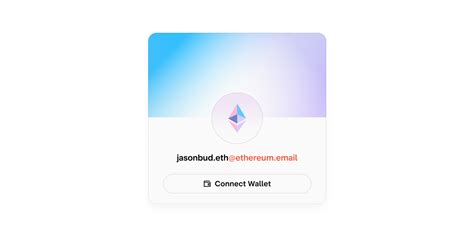Common Mistakes to Avoid: Using Same Wallet Address and Contract Address with Same Public Key
When building smart contracts on blockchain platforms like Ethereum, Polygon, or others, understanding how to use wallet addresses and contract addresses correctly is crucial. One common mistake that many developers make is using the same wallet address and contract address with the same public key.
Why is it a problem?
Using the same wallet address and contract address with the same private key can lead to several issues:
- Conflicting transactions: If you use the same wallet address for both your personal account and a smart contract, it may result in conflicting transactions or errors when sending funds to your contract.
- Contract deployment issues: When deploying a smart contract, using the same wallet address and private key can lead to unexpected behavior, such as incorrect execution of the contract code.
- Security risks: Using the same private key for both accounts increases the risk of security breaches or unauthorized access to sensitive data.
What does it mean to use the same public key?
A public key is a unique identifier that uniquely represents an account on a blockchain network. It’s what you see on your wallet address. In Ethereum, each account has a different public key (known as the “address” or “eth-address”), but multiple accounts can share the same private key.
The difference between a wallet address and a contract address
While both are used to identify an account on a blockchain network, they serve different purposes:
- Wallet Address: A unique identifier for your personal Ethereum account.
- Contract Address
: Used to deploy smart contracts on a decentralized application (dApp) or interact with external services.
What would you do instead?

To avoid the mistakes mentioned above, it’s essential to use separate wallet addresses and contract addresses with different public keys:
- Create a new wallet address for your personal account.
- Use this private key to deploy smart contracts on Polygon or other platforms that support multiple wallets.
- When deploying a smart contract, use the `from’ method of the Ethereum wallet library (e.g., Web3) to generate unique addresses.
Example code snippet
Here’s an example in JavaScript using the Web3 library:
const web3 = new Web3(new Web3.providers.HttpProvider('
// Create a new wallet address for your personal account
const personalAddress = '0x2953399124F0cBB46d2CbACD8A89cF0599974963';
// Generate a contract address using the same private key (but different public key)
const contractAddress = web3.eth.accounts.fromPrivateKey({
privateKey: '0xYOUR_PRIVATE_KEY',
});
console.log(contractAddress);
In summary, to avoid common mistakes and ensure secure smart contract development, use separate wallet addresses and contract addresses with different public keys. Always generate new private keys for each account or deployment, and make sure to follow best practices for wallet address management.

Add comment